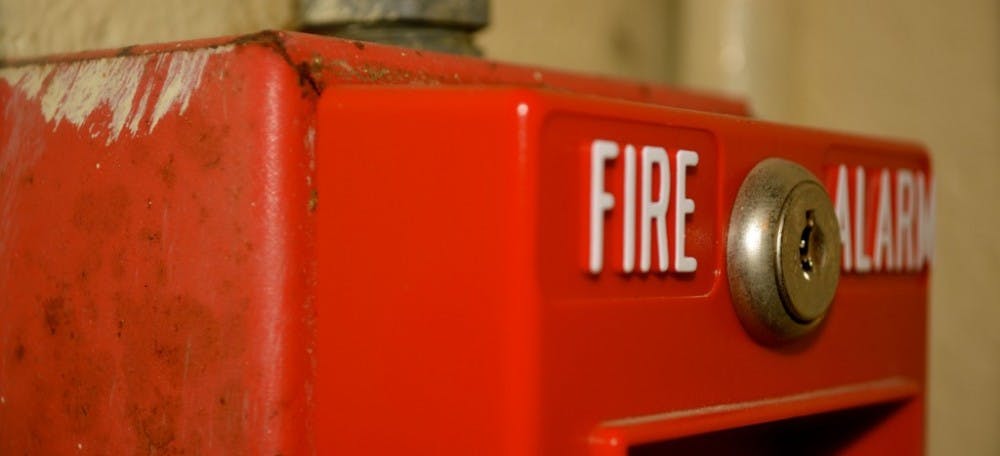Standing outside one’s dorm building in nothing but pajamas and slippers at 3 a.m. is a memory shared by many Elon University students. It is not uncommon for several fire engines to appear on Elon University’s campus in the early hours of the morning, or anytime during the day, in response to false fire alarms, and the Elon Fire Department is getting annoyed.
Since Aug. 1, 2012 to Feb. 26, 2013, there have been 116 fire alarms on campus, according to Scott Jean, chief of security at Campus Safety and Police. While many students regard false alarms as temporary inconveniences, firefighters must arrive at the scene of the incident within minutes.
“People do get frustrated, especially when it’s a student who put a burrito in the microwave for 40 minutes instead of four and left the building,” said Danton Kerz, a volunteer with the Elon Fire Rescue team.
According to Kerz, cooking mishaps are usually the source of false alarms, followed by excess shower steam.
Most of Elon’s residence halls and on-campus apartments are equipped with stoves and microwaves, providing ample opportunity for smoky accidents.
“I walked away for a second, and all of a sudden my pan consisting of Pam and potatoes was literally a hot mess,” said an Elon student who requested anonymity. “I felt particularly stupid because it seemed like everyone in the building was inconveniently in the middle of a shower and had to run out of the building in towels. I felt bad that I wasted the resources of the fire department.”
Although fire alarms are triggered all too often on Elon’s campus, the Elon Fire Department treats every alert as a working structure fire or residential fire until proved otherwise. In 1923, Elon’s campus was nearly destroyed due to a raging structural fire. A minimum of four fire engines will arrive with four to ten firefighters at any campus location, according to Kerz.
“I think that the fire department works very hard to fight the urge to say, ‘Oh, it is just another false alarm’ and not show up as ready as possible because the one day that we down our guard and respond, that’s when we will have a working structure fire,” he said.
According to the U.S. fire administration, cooking accidents account for 88 percent of fires at universities, yet the majority of kitchen-based incidents merely trigger the alarm with excess smoke. All apartments located in Crest, Station at Millpoint, Danieley, and the Oaks have either kitchens or kitchenettes, and each hall in Colonnades is equipped with a full kitchen. Other universities, including Guilford College and North Carolina State, have similar setups.
“We would rather that our fire detection systems were overly sensitive, as opposed to not sensitive enough, because that one time there is the fire it could make the difference between life and death,” Kerz said.
Jean said he agrees it is better the fire alarms sound regularly due to burned food and other minor triggers, for unresponsive alarms could result in disaster.
“They are not technically false alarms since the system is doing its job,” Jean said. “We have not had any major fires.”
According to Jean, Elon students can prevent false fire alarms by using the microwave properly, monitoring shower steam and simply being consciousness of the alarm’s oversensitivity.


